The UK’s Changing Democracy: The 2018 Democratic Audit
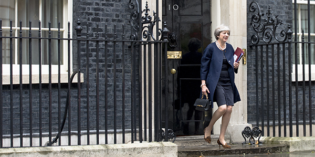
How democratic and effective are the UK’s core executive and government?
In an article from our forthcoming publication, The UK’s Changing Democracy: The 2018 Democratic Audit, Patrick Dunleavy looks at how well the dominant centre of power in the British state operates – spanning the Prime Minister, Cabinet, Cabinet committees, ministers and critical central departments. How accountable and responsive to Parliament and the public is this ‘core executive’? And how effective are these key centres of decision-making and the rest of Whitehall government, in making policy? Do they consistently serve UK citizens’ interests?
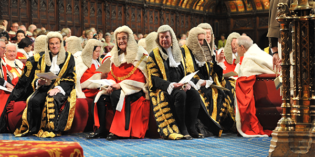
How democratic is the UK’s basic constitutional law?
The foundations of any liberal democracy lie with its constitutional arrangements, the key means by which the powers of the state are specified, distributed across different institutions and regulated. Constitutions set out how the state is structured, what its major institutions are, and what basic principles govern their relations with each other and with citizens. In the UK these provisions are famously diverse and uncodified, with no single written ‘constitution’ document. Michael Gordon looks at how to assess the democratic basis of constitutional law, and how well recent experience suggests that the UK has been performing.

The UK’s Changing Democracy: The 2018 Democratic Audit
Our latest book, The UK’s Changing Democracy: The 2018 Democratic Audit, is published by the new LSE Press. It is an open access book, freely available (in full) for any reader to download in all ebook formats. You can read articles from the book below. Similar PostsAuditing the UK’s democracy in 2018: Core UK governance institutions […]
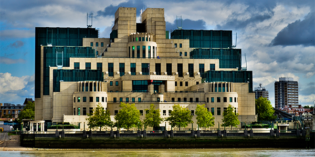
How accountable are the UK’s security and intelligence services to Parliament?
For our 2018 Audit of UK Democracy, Sean Kippin and the Democratic Audit team assess the ways in which the UK’s four main security services are scrutinised, to ensure that they are operating legally and in the public interest. For matters that must be kept secret, ‘compromise’ forms of scrutiny have now been developed in Parliament. But how effectively or independently do they work?
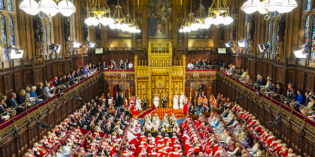
How undemocratic is the House of Lords?
For our 2018 Audit of UK Democracy, Sonali Campion, Sean Kippin and the Democratic Audit team examine how the UK’s deeply controversial current second chamber, the House of Lords, matches up to the criteria for liberal democracies with bi-cameral legislatures. Now an almost-all appointed Chamber, the Lords has achieved recent prominence on Brexit and tax credits by exerting some bipartisan influence moderating Commons proposals. However, its members remain creatures of patronage, and wholly unaccountable to the UK’s citizens. All parties except the Tories now support its replacement by an elected Senate. Increasingly only the Tories and Liberal Democrats are still appointing any peers – although there are also a fifth of peers who are ‘crossbenchers’, not taking a party whip.
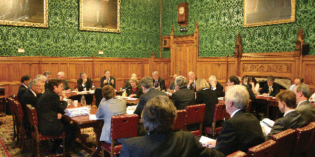
How effective are the Commons’ two committee systems at scrutinising government policy-making?
In addition to their floor debates, a crucial role of legislatures is to scrutinise government law-making and policy implementation. The House of Commons looks at legislation via bill committees, and its select committees cover each of the Whitehall departments to scrutinise implementation. As part of the 2018 Audit of UK Democracy, Patrick Dunleavy and the Democratic Audit team consider how well current processes maintain parliamentary knowledge and scrutiny of the central state in the UK and England.
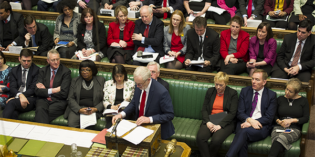
How democratic is the House of Commons? How effectively does it control the UK government and represent citizens?
How well does the House of Commons work via floor debates, questions to ministers and as a general means of scrutinising and passing legislation, and monitoring policy implementation? Has the return of a hung parliament since 2017 changed how the House of Commons functions as a legislature? As part of our forthcoming 2018 Audit of UK Democracy, Artemis Photiadou and Patrick Dunleavy consider if the traditional model of Parliament as primarily supporting a showcase political clash of government and opposition has changed to make the Commons a more effective focus of national debate or to create stronger control of the executive.

How well does the UK’s media system support democratic politics and represent citizens’ interests?
The growth of ‘semi-democracies’ across the world, where elections are held but are rigged by state power-holders, has brought into ever-sharper focus how much a country’s media system conditions the quality of its democracy. Free elections without some form of media diversity and balance clearly cannot hope to deliver effective liberal democracy. Ros Taylor and the Democratic Audit team look at how well the UK’s media system operates to support or damage democratic politics, and to ensure a full and effective representation of citizens’ political views and interests.

How democratic is the interest group process in the UK?
Between elections, the interest group process (along with media and social media coverage) is a key way in which citizens can seek to communicate with their MPs and other representatives, and to influence government policy-makers. For the 2018 Audit of UK Democracy, Patrick Dunleavy considers how far different social groups can gain access and influence decision-makers. How democratically does this key form of input politics operate? And how effectively are all UK citizens’ interests considered?



 Democratic Audit's core funding is provided by the Joseph Rowntree Charitable Trust. Additional funding is provided by the London School of Economics.
Democratic Audit's core funding is provided by the Joseph Rowntree Charitable Trust. Additional funding is provided by the London School of Economics.